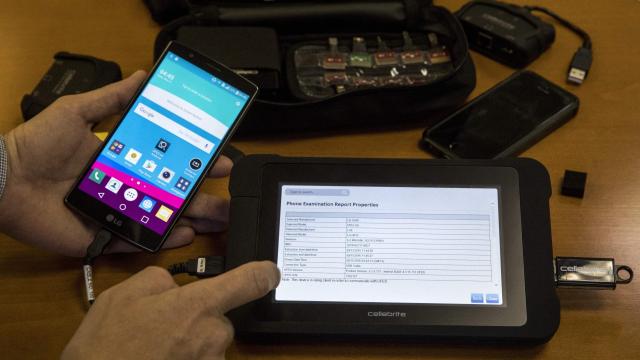Ahead of its planned IPO in the U.S., Cellebrite faces fresh flames after its phone-cracking tools were yet again used to violate the privacy of journalists.
The unscrupulous digital forensics firm sells data extraction tools to government authorities throughout the world, helping police crack into suspects phones and analyse their data. Critics have frequently criticised the company for its sales to repressive governments — as well as its apparent inability to meaningfully respond to the human rights abuses committed by those clients.
In May, the Committee to Protect Journalists published a report revealing the horrendous ordeal of Oratile Dikologang, a Botswana-based reporter who was arrested by police last year on bizarre charges and allegedly tortured. In the course of his arrest, authorities used Cellebrite to unlock Dikologang’s phone and extract information about all of his contacts and sources.
Now CPJ has uncovered another episode in which Cellebrite’s technology was used to invasively target a journalist: Tsaone Basimanebotlhe, a reporter for the Botswana newspaper Mmegi, says that police came to her village in 2019 and served her with a warrant — not to arrest her, but to seize her devices.
Apparently believing that she had information about a member of Botswana’s national spy agency, the cops deployed Cellebrite’s Universal Forensic Extraction Device (UFED) and Physical Analyser products, extracting the contents of Basimanebotlhe’s phone including “thousands of her messages, call logs, and emails, and her web browsing history,” according to CPJ.
Yet while they hoovered up her personal information, police apparently found no evidence of what they were originally looking for.
“They said they didn’t find anything in my phone,” Basimaonebotlhe told CPJ. “[But] they went through my SMS, my WhatsApp [messages],” she said. “They’re looking for people that are divulging information to the media,” she added.
This story comes at something of an unfortunate moment for Cellebrite. The company is set to go public in a $US2.4 ($3) billion merger with a blank check company, TWC Tech Holdings II Corp — a deal that will put it on the NASDAQ. The IPO has been hampered somewhat, however, by a cadre of 30 human rights groups who are lobbying both investors and U.S. regulators to block the deal until the company cleans up its human rights record.
Those groups recently sent an open-letter to U.S. Securities and Exchange Commission, NASDAQ, TWC Tech Holdings II Corp, and other entities attached to the IPO deal, asking that stakeholders abandon the deal until Cellebrite quits its habit of “selling its products to repressive regimes and enabling detentions, prosecutions, and harassment of journalists, civil rights activists, dissidents, and minorities around the world.”
“We are calling on the parties to halt this deal until Cellebrite demonstrates that it has taken sufficient measures to comply with human rights,” the letter reads, further arguing that the company has openly admitted that some of its products “may be used by customers in a way that is, or that is perceived to be, incompatible with human rights” and that “any such perception could adversely affect [its] reputation, revenue and results of operations.”
